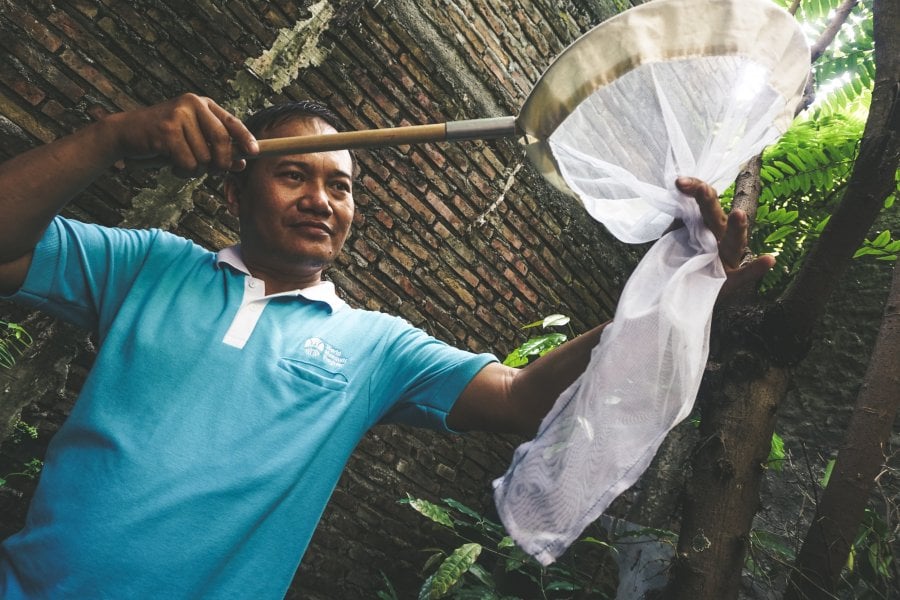World Mosquito Program’s Wolbachia method dramatically reduces dengue incidence in Indonesia
26 August 2020 London School of Hygiene & Tropical Medicine London School of Hygiene & Tropical Medicine https://lshtm.ac.uk/themes/custom/lshtm/images/lshtm-logo-black.png
Professor Nicholas Jewell from the London School of Hygiene & Tropical Medicine was the study statistician on the trial, having conceived of the design, statistical methods, and ultimate data analysis.
The three-year cluster randomised controlled trial tested whether infecting mosquitoes with the wMel strain of Wolbachia would reduce the incidence of virologically-confirmed dengue amongst 3 to 45yr olds living in Yogyakarta, an area with a population of 312,000. It showed a 77% reduction in the incidence of virologically-confirmed dengue in Wolbachia-treated areas of Yogyakarta, Indonesia, compared to untreated areas.
More than two years after completion of mosquito releases, Wolbachia has persisted at a very high level in the local mosquito population.
Dengue is the most rapidly spreading mosquito-borne disease in the world. An estimated 50 million cases occur globally every year. Indonesia is highly endemic for dengue. Recent estimates suggest nearly eight million cases occur every year.
WMP Indonesia Principal Investigator, Prof. Adi Utarini from Universitas Gadjah Mada, said: “This exciting result of the trial is a great success for the people of Yogyakarta. Indonesia has seven million dengue cases every year. This trial result shows the significant impact the Wolbachia method can have in reducing dengue in urban populations.”
Principal Investigator and WMP Oceania Director, Prof. Cameron Simmons said, “This result is incredibly exciting. A safe, durable and efficacious new product class for dengue control is just what the global community needs.”
Nicholas Jewell, Professor of Biostatistics and Epidemiology at the London School of Hygiene & Tropical Medicine, said: "The results are compelling. Doubly exciting is that the trial design used here provides a template that other candidate interventions can follow."
Twelve of twenty-four similarly-sized and predefined areas of Yogyakarta city were chosen at random to receive wMel Wolbachia-deployments in addition to routine dengue control measures; the remaining 12 continued to receive routine dengue control efforts.
The trial enrolled 8,144 participants aged 3 to 45yrs who presented to one of 18 primary care clinics with acute undifferentiated fever of between 1 to 4 days duration. The study design compared the frequency of all dengue cases in the Wolbachia areas of the city to that for the control illnesses to measure the efficacy of wMel in reducing the incidence of virologically-confirmed dengue cases over a 27-month period.
Wolbachia deployments were well-accepted by the community and there have been no safety concerns. This trial is the culmination of a decade of laboratory and field studies, beginning first in Australia and then expanding to 11 dengue endemic countries.
World Mosquito Program Director, Scott O’Neill said, “This is the result we’ve been waiting for. We have evidence our Wolbachia method is safe, sustainable and reduces incidence of dengue. Now we can scale this intervention across cities. It gives us great confidence for how we can scale this work worldwide across large urban populations.”
Detailed results of the trial will be presented at an international scientific congress in November 2020 and published in a peer-reviewed journal.
LSHTM's short courses provide opportunities to study specialised topics across a broad range of public and global health fields. From AMR to vaccines, travel medicine to clinical trials, and modelling to malaria, refresh your skills and join one of our short courses today.